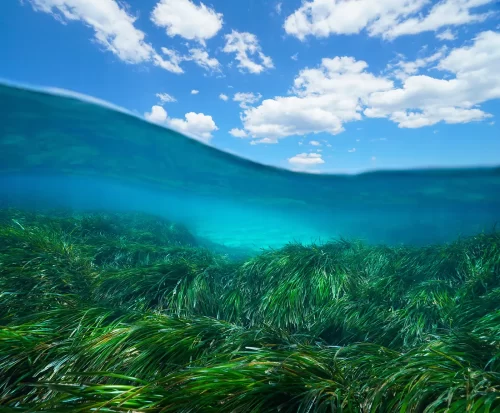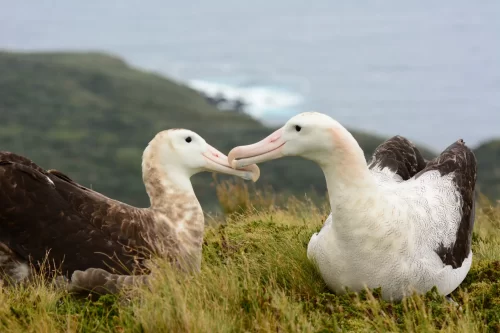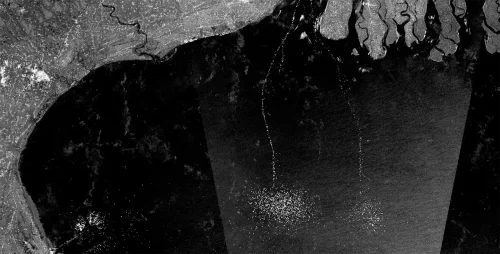
The Issue
The fishing industry in Papua New Guinea is vital to the country’s economy, food security and also the livelihoods of those that reside within this diverse island nation. Boasting a coastline that stretches over 10,000 miles (16,093 kilometers), Papua New Guinea’s waters cover more than 1.5 million square miles (3.9 million square kilometers)—just over half the size of Australia—and are home to some of the most productive tuna fisheries in the world. The monitoring and sustainable management of fishing within this vast area is essential if the country’s marine resources are to continue to provide for people in the future.
Our Work
In 2022, Papua New Guinea’s National Fisheries Authority, supported by the Fishing Industry Association, made the momentous decision to publish data from its vessel monitoring system on the Global Fishing Watch map. And in June 2023, it became the first country in the Pacific to do so. Since then, the movements of around 50 purse seine tuna fishing vessels have been publicly visible on the interactive map, bringing a new level of transparency to one of the biggest tuna fisheries in the region.
Papua New Guinea plans to bring more fishing vessels into its national waters and expand the membership of the Fishing Industry Association, aiming to share even more vessel tracking data with Global Fishing Watch in years to come. In turn, we are supporting the National Fisheries Authority and the Fishing Industry Association with the generation of insights and analysis to enhance their monitoring capabilities.
“Our tuna fishery is one of the largest in the Western and Central Pacific Ocean and represents a key source of protein for more than 9 million people in Papua New Guinea. Taking care of our tuna stocks is a priority, and with support from Global Fishing Watch’s monitoring technology, we can strengthen enforcement, contribute to regional collaboration to eliminate illegal fishing and also demonstrate our commitment to promoting food security and the blue economy.”
Justin Ilakini,National Fisheries Authority, Papua New Guinea

